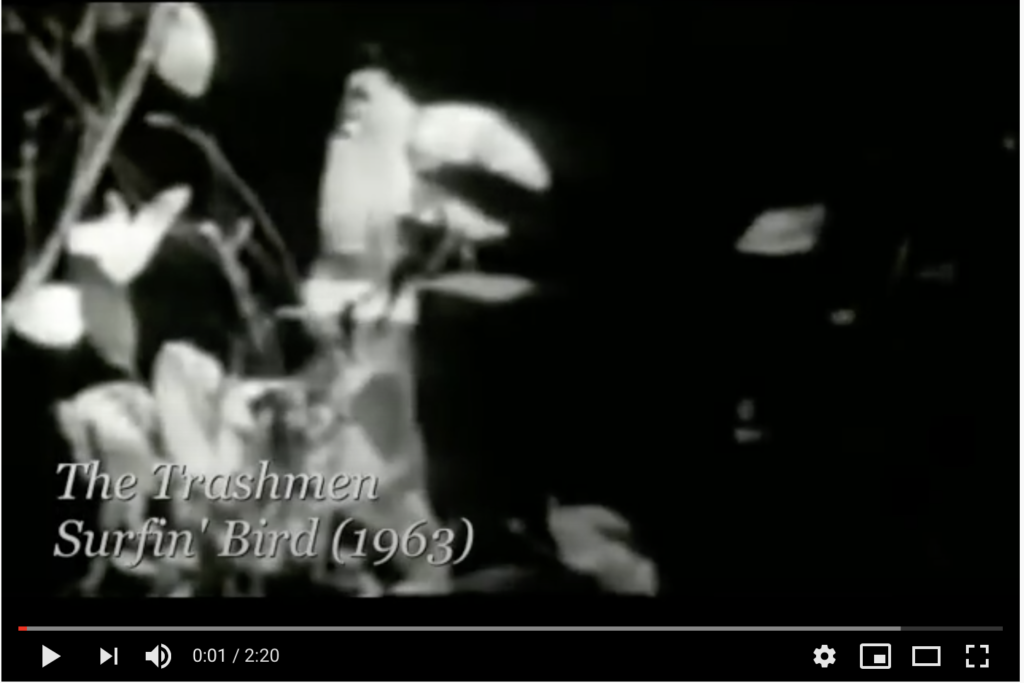The Experiences of Research – Making Knowledge Methodology Seminars explore interaction formats for knowledge sharing and collective knowledge creation.
The presentation of the two research articles Performative Schizoid Method & Knowledge Catcher, happened in the form of a co-performed, poly-phonic introduction, voiced by Mads Høbye, Eduardo Abrantes, Christian Jacquemin and Connie Svabo. The co-created knowledge sharing was based on the manuscript found below.
For an alternative reading of the manuscript, spell your way through the text while listening to Surfin’ Bird. (Thank you Eduardo!). For more researcherly enactments of birdiness, see the article on the Performative Schizoid Method.

A co-performed (schizoid?) introduction
For the discussion of the articles Performative Schizoid Method: Performance as Research & Knowledge Catcher: On the Performative Agency of Scholarly Forms. May 14th 2020, Experiences of Research, Making Knowledge Methodology Seminars –
By Connie Svabo
As a short introduction, I would like to mention how I see these two pieces relate to our overall theme of ‘experiences of research’ and the subtitle of the seminars of methodologies of ‘making knowledge’:
The performative schizoid method works with a dimension of experiences of research – namely that of identity and whether it is possible to both do research and art; to both be a researcher and an artist.
The performative schizoid method does this by exploring sensory engagements – and processes of making, which have a kind of ‘doodling’ approach – that is, they are framed as non-goal-directed processes – processes of trying out things and playing with purposelessness, trying to let random materials and findings have a say.
The article focuses on art and research – and the identity positions of the researcher and the artist, but I find that this issue is of much broader relevance for researcher identity and knowledge making: more generally in relation to the relationship between research and practice – and how, for example, people who have a practice-background might include this practice-based knowing in their academic work.
This is relevant for arts-perspectives, but also for designers, teachers, nurses, administrators, journalists, communication professionals etc.
With the performative schizoid method, I seek to disturb the idea that one person has one identity, one role, one way of engaging in knowledge production, and I try to develop a methodological position, from which
partial identities
and knowledges
can come into play
in research.
Both of these pieces – the performative schizoid method and the knowledge catcher – relate to experiences of research in the sense that they seek to include sensory and emotional engagements in knowledge making.
The knowledge catcher piece engages with the notion that emotionality can be given space in the making of research and in the experiencing of research. The article takes an idea from design studies which is called ‘emotionalize design’ and suggests that how researchers feel about their work might be relevant to include in assessments of quality.
The article furthermore extends the importance of emotions into the reading situation – by providing the Knowledge Catcher as a device for creating an emotional choreography of knowledge co-creation – where it is suggested that the readers feelings may guide the reading experience: represented in the feelings of being bored, annoyed, skeptical or intrigued.
The knowledge catcher seeks to foreground the performativity and relationality of knowledge creation – wanting to connect readers and writers in collaborative performances.
Collaborative Performances
of Making Knowledge – exploring
experiences of research.
